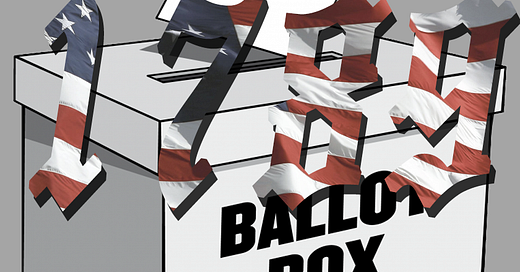Revisiting the Birth of the Republic: The Election of 1789
Tracing the Foundational Moments of the Nations First Election of President
“I, George Washington, do solemnly swear that I will faithfully execute the Office of President of the United States, and will to the best of my ability, preserve, protect and defend the Constitution of the United States.”
Following the Constitutional Convention in 1787 and its ratification by the necessary amount of states in July of 1788, Congress determined January 7, 1789 as the date of which states would delegate electors for the first presidential election in the history of the nation. Those votes were cast on February 4th, when 10 states gathered electors to cast ballots. New York did not cast ballots as the local legislature was embroiled in conflict about the set of electors to present, and North Carolina and Rhode Island had yet to ratify the Constitution, so they also did not cast votes. Each elector cast two names for nomination, without presence notated, and the victor would be elected president, while the runner up was elected vice president. A total of 69 ballots submitted for the nations first President. The following tallies of the electoral count and the methods by which electors were selected for the Presidential Election of 1789 derives from Merrill Jensen et al., eds., The Documentary History of the First Federal Elections, 1788-1790.
Of those receiving votes for this initial nomination, the prestigious list includes a future President (Adams) as well as multiple Vice Presidents (Adams, Clinton), Supreme Court Chief Justices (Jay, Rutledge), and state governors (Jay, Rutledge, Hancock, Clinton, Huntington). John Rutledge additionally was the chairman of the Committee of Detail during the drafting of the Constitution, which , if you remember, was instrumental in the incorporation of a preamble into the nation’s premier founding document.
The concept of the second place candidate becoming the Vice President may seem foreign to us in the modern electoral system, however there are interesting facets to this concept. Realistically, we all have seen at least the modern degradation of the Vice Presidential position. Outside of the very rare tiebreaker senate vote as the President of the Senate, today the office is largely ceremonial and used to appeal to a voting demographic that the presidential candidate lacks appeal with. We will go further into the roles defined in Article II Section 1 when in our Constitutional Analysis series. But to emphasize the lack of real responsibility of the office, think back to the current office holder; while I may not need to say more I remember the title of “Border Czar” and the chuckles it brings to mind alone remind me how largely “warm body” the office has become. But to wrap up this little tangent, if you’d like me to break down the concept of returning to a similar electoral system and the potential benefits and drawbacks, leave a comment below on this article and let me know.
Adams, however, was elected vice president, despite being one vote shy of a majority opinion. It was not until the ratification of the 12th amendment (1804) which further defined and outlined the electoral process, changing it to a more familiar framework, which required a majority vote for the vice presidential candidate as well. However, I leave you with the words of Alexander Hamilton, who wrote to Washington in an attempt to convince him to accept the office of the presidency.
“…the point of light in which you stand at home and abroad will make an infinite difference in the respectability in which the government will begin its operations in the alternative of your being or not being the head of state.”
-Alexander Hamilton to George Washington
How much greater would our nation be lead if those at the helm had to be convinced that their participation would be a driving factor for respectability and legitimacy of the department they oversee as opposed to a vessel for personal agendas and monetary opportunity.








Would the second place (VP) be the second by popular or electoral of the same party?